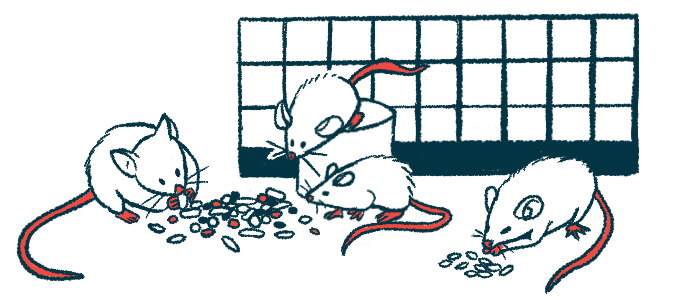Arthritis Medicine Helps Prevent FVIII Inhibitors in Animal Study

Treatment with abatacept, a medication approved for rheumatoid arthritis, prevented the formation of inhibitors against hemophilia A replacement therapies in a rat model, a study demonstrates.
These findings support the use of abatacept to prevent immune responses against human proteins in a preclinical setting, the researchers noted.
The study, “CTLA4-Ig prevents development of neutralizing antibody formation after continuous treatment with human FVIII in HA rats,” was published in the journal Haemophilia.
One of the standard therapies for people with hemophilia is replacement therapy, in which the deficient blood clotting factor that causes the disease is replaced from an external source, either to stop spontaneous bleeds (on-demand) or to prevent future bleeding episodes (prophylaxis).
However, in up to 30% of patients, neutralizing antibodies, or inhibitors, can develop against the externally-supplied replacement protein, limiting its effectiveness.
Studies have shown that immune T-cells play a central role in the formation of these inhibitors by mediating the growth of antibody-producing immune B-cells.
Abatacept (CTLA4-Ig), a medication sold under the brand name Orencia to treat the autoimmune disease rheumatoid arthritis, is designed to suppress immune attacks on the body by blocking T-cell activation.
Scientists at Novo Nordisk A/S in Denmark, a company that markets replacement therapies, tested the impact of abatacept to suppress the formation of inhibitors in a rat model of hemophilia A, which is caused by a lack of clotting factor VIII (FVIII). Animals were treated with two different replacement therapies.
Unlike other animal models of hemophilia A, rats deficient in FVIII bleed spontaneously, often in the joints, similar to hemophilia A patients, and they readily develop inhibitors against FVIII replacement therapy.
Rats were treated with the replacement therapies octocog alfa, sold as Advate, and rurioctocog alfa pegol, marketed as Adynovate, by infusion directly into the bloodstream at therapeutically relevant doses, regularly over the course of one month. At the same time, abatacept was administered to some animals, and blood samples were collected.
The analysis revealed that anti-FVIII antibodies were detected after two weeks in rats treated with both replacement therapies, whereas no such antibodies formed when animals also received abatacept.
After four weeks, rats treated with replacement therapies developed antibodies that bound to FVIII, as well as antibodies that bound and blocked FVIII activity. In contrast, rats treated with abatacept did not develop any inhibitors.
The team then measured bleeding time and blood loss to determine whether abatacept could preserve the therapeutic effect of replacement therapies.
As expected, hemophilia A rats bled for a longer period of time compared with healthy animals. When rats received both octocog alfa and abatacept, bleeding time was significantly reduced compared with untreated rats, similar to healthy rats.
As a positive control, compared with healthy rats, longer bleeding times were also seen for animals that received IgG4, an antibody that triggers autoimmune attacks on the body, which causes IgG4-related disease, similar to rheumatoid arthritis.
In rats treated with octocog alfa and IgG4, the replacement therapy had no effect, “in agreement with inhibitory antibody formation,” the team wrote. In rats co-treated with abatacept, the efficacy of octocog alfa was retained, with a significant drop in bleeding time and total blood loss compared with those given IgG4.
Similar results were found in rats treated with rurioctocog alfa pegol and abatacept, in which bleeding time was significantly reduced compared with rats co-treated with IgG4. In addition, animals treated with abatacept and replacement therapy had significantly lower secondary bleeds and total blood loss compared with rats treated with rurioctocog alfa pegol and IgG4.
“We have documented robust and reproducible prevention of [inhibitors] during continuous [FVIII] treatment by co-administration of [abatacept] in a rat model,” the researchers wrote.
“This method can be used in future long-term prophylactic animal studies in [hemophilia A] and potentially within other therapy areas where [immune response] is an obstacle for evaluating the effect of continuous treatment in preclinical models,” they wrote.








